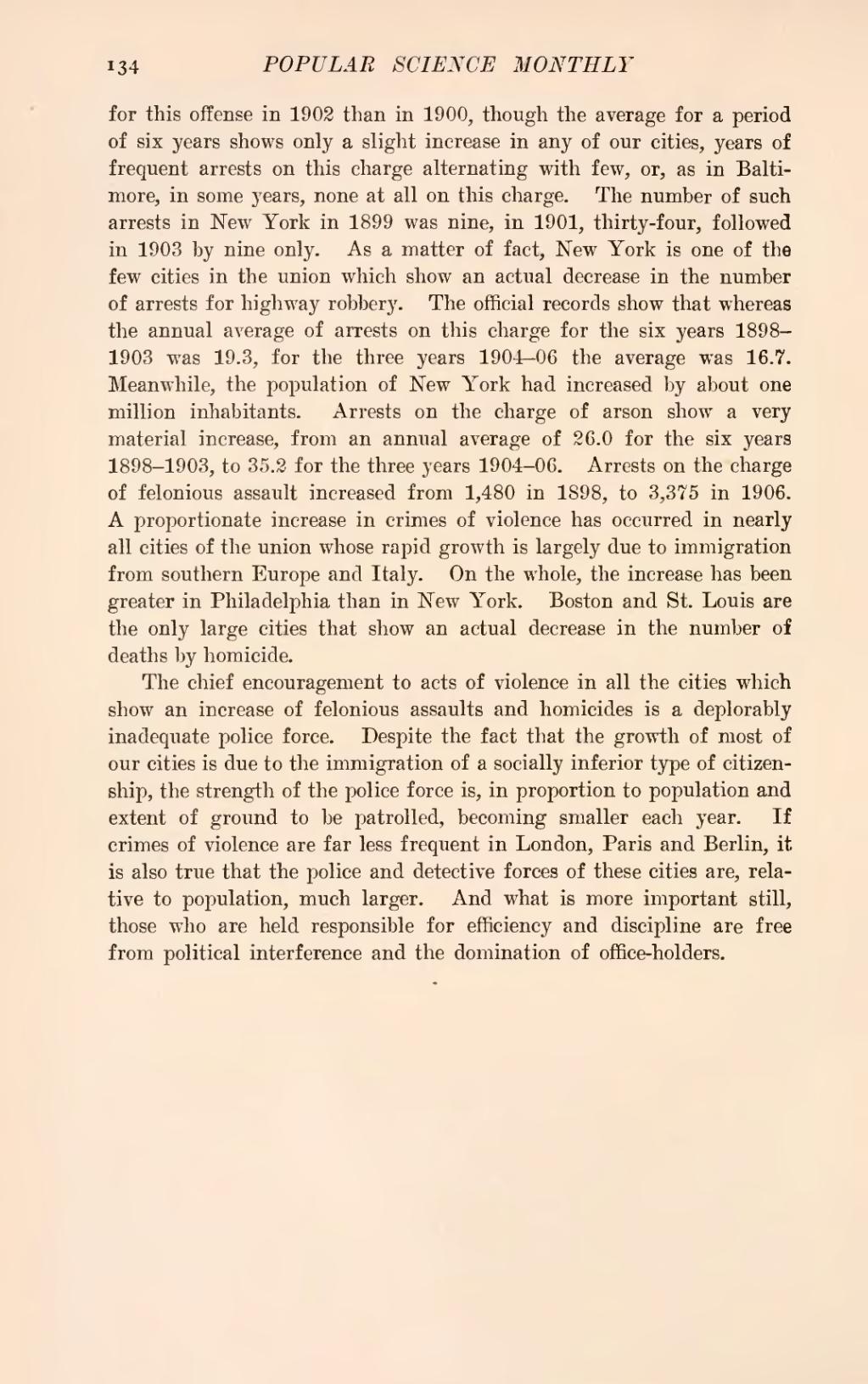for this offense in 1902 than in 1900, though the average for a period of six years shows only a slight increase in any of our cities, years of frequent arrests on this charge alternating with few, or, as in Baltimore, in some years, none at all on this charge. The number of such arrests in New York in 1899 was nine, in 1901, thirty-four, followed in 1903 by nine only. As a matter of fact, New York is one of the few cities in the union which show an actual decrease in the number of arrests for highway robbery. The official records show that whereas the annual average of arrests on this charge for the six years 18981903 was 19.3, for the three years 1904-06 the average was 16.7. Meanwhile, the population of New York had increased by about one million inhabitants. Arrests on the charge of arson show a very material increase, from an annual average of 26.0 for the six years 1898-1903, to 35.2 for the three years 1904-06. Arrests on the charge of felonious assault increased from 1,480 in 1898, to 3,375 in 1906. A proportionate increase in crimes of violence has occurred in nearly all cities of the union whose rapid growth is largely due to immigration from southern Europe and Italy. On the whole, the increase has been greater in Philadelphia than in New York. Boston and St. Louis are the only large cities that show an actual decrease in the number of deaths by homicide.
The chief encouragement to acts of violence in all the cities which show an increase of felonious assaults and homicides is a deplorably inadequate police force. Despite the fact that the growth of most of our cities is due to the immigration of a socially inferior type of citizenship, the strength of the police force is, in proportion to population and extent of ground to be patrolled, becoming smaller each year. If crimes of violence are far less frequent in London, Paris and Berlin, it is also true that the police and detective forces of these cities are, relative to population, much larger. And what is more important still, those who are held responsible for efficiency and discipline are free from political interference and the domination of office-holders.

